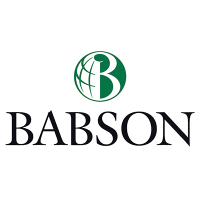What do they do?
Plan, direct, or coordinate the operations of public or private sector organizations, overseeing multiple departments or locations. Duties and responsibilities include formulating policies, managing daily operations, and planning the use of materials and human resources, but are too diverse and general in nature to be classified in any one functional area of management or administration, such as personnel, purchasing, or administrative services. Usually manage through subordinate supervisors. Excludes First-Line Supervisors.
Also known as:
Area Manager, Business Manager, Center Manager, Department Manager, District Manager, General Manager (GM), Manufacturing Operations Manager, Office Manager, Operations Director, Operations General Manager (Operations GM), Operations Manager, Plant Superintendent, Site Operations Manager, Store Director, Store Manager
-
6.4%
Change
Ranks #53 in job growth rate6,020Job Openings
Ranks #18 in net job growth
-
Northwestern University
Evanston, IL
-
Babson College
Wellesley, MA
-
Massachusetts Institute of Technology
Cambridge, MA
-
University of Chicago
Chicago, IL
-
University of Notre Dame
Notre Dame, IN
Looking for colleges that offer a specific major? Use the College Match Tool to find your best-matched schools and discover your estimated Net Price!
- Doctorate or Professional Degree (2%)
- Master's degree (11%)
- Bachelor's degree (33%)
- Associate's degree (10%)
- Some college, no degree (24%)
- High school diploma equivalent (17%)
- Less than high school diploma (3%)
Most Popular Majors that prepare General and Operations Managers
-
#1
-
Degrees Granted
311,165
-
Female Students
154,898
-
Male Students
156,267
-
Median Starting Salary
$39,500
-
-
#2
-
Degrees Granted
53,014
-
Female Students
26,722
-
Male Students
26,292
-
Median Starting Salary
$48,168
-
-
#3
-
Degrees Granted
47,093
-
Female Students
13,776
-
Male Students
33,317
-
Median Starting Salary
$39,100
-
-
#4
-
Degrees Granted
23,201
-
Female Students
9,445
-
Male Students
13,756
-
Median Starting Salary
$57,200
-
-
#5
-
Degrees Granted
15,721
-
Female Students
9,272
-
Male Students
6,449
-
Median Starting Salary
$40,900
-
People in this career often have these skills:
- Reading Comprehension - Understanding written sentences and paragraphs in work-related documents.
- Active Listening - Giving full attention to what other people are saying, taking time to understand the points being made, asking questions as appropriate, and not interrupting at inappropriate times.
- Speaking - Talking to others to convey information effectively.
- Monitoring - Monitoring/Assessing performance of yourself, other individuals, or organizations to make improvements or take corrective action.
- Critical Thinking - Using logic and reasoning to identify the strengths and weaknesses of alternative solutions, conclusions, or approaches to problems.
- Coordination - Adjusting actions in relation to others' actions.
- Social Perceptiveness - Being aware of others' reactions and understanding why they react as they do.
- Management of Personnel Resources - Motivating, developing, and directing people as they work, identifying the best people for the job.
- Active Learning - Understanding the implications of new information for both current and future problem-solving and decision-making.
- Persuasion - Persuading others to change their minds or behavior.
- Complex Problem Solving - Identifying complex problems and reviewing related information to develop and evaluate options and implement solutions.
- Judgment and Decision Making - Considering the relative costs and benefits of potential actions to choose the most appropriate one.
- Time Management - Managing one's own time and the time of others.
- Writing - Communicating effectively in writing as appropriate for the needs of the audience.
- Negotiation - Bringing others together and trying to reconcile differences.
People in this career often know a lot about:
- Administration and Management - Knowledge of business and management principles involved in strategic planning, resource allocation, human resources modeling, leadership technique, production methods, and coordination of people and resources.
- Customer and Personal Service - Knowledge of principles and processes for providing customer and personal services. This includes customer needs assessment, meeting quality standards for services, and evaluation of customer satisfaction.
- English Language - Knowledge of the structure and content of the English language including the meaning and spelling of words, rules of composition, and grammar.
- Production and Processing - Knowledge of raw materials, production processes, quality control, costs, and other techniques for maximizing the effective manufacture and distribution of goods.
- Mathematics - Knowledge of arithmetic, algebra, geometry, calculus, statistics, and their applications.
- Personnel and Human Resources - Knowledge of principles and procedures for personnel recruitment, selection, training, compensation and benefits, labor relations and negotiation, and personnel information systems.
People in this career often have talent in:
- Oral Comprehension - The ability to listen to and understand information and ideas presented through spoken words and sentences.
- Written Comprehension - The ability to read and understand information and ideas presented in writing.
- Oral Expression - The ability to communicate information and ideas in speaking so others will understand.
- Written Expression - The ability to communicate information and ideas in writing so others will understand.
- Problem Sensitivity - The ability to tell when something is wrong or is likely to go wrong. It does not involve solving the problem, only recognizing that there is a problem.
- Deductive Reasoning - The ability to apply general rules to specific problems to produce answers that make sense.
- Speech Clarity - The ability to speak clearly so others can understand you.
- Speech Recognition - The ability to identify and understand the speech of another person.
- Inductive Reasoning - The ability to combine pieces of information to form general rules or conclusions (includes finding a relationship among seemingly unrelated events).
- Information Ordering - The ability to arrange things or actions in a certain order or pattern according to a specific rule or set of rules (e.g., patterns of numbers, letters, words, pictures, mathematical operations).
- Near Vision - The ability to see details at close range (within a few feet of the observer).
- Category Flexibility - The ability to generate or use different sets of rules for combining or grouping things in different ways.
People in this career often do these activities:
- Analyze data to inform operational decisions or activities.
- Analyze financial records to improve efficiency.
- Direct sales, marketing, or customer service activities.
- Direct organizational operations, projects, or services.
- Determine pricing or monetary policies.
- Prepare staff schedules or work assignments.
- Direct financial operations.
- Provide basic information to guests, visitors, or clients.
- Develop marketing plans or strategies.
- Conduct employee training programs.
- Hire personnel.
- Implement organizational process or policy changes.
- Develop organizational goals or objectives.
- Develop organizational policies or programs.
- Monitor performance of organizational members or partners.
- Manage environmental sustainability projects.
- Plan facility layouts or designs.
- Determine resource needs.
- Manage construction activities.
- Recommend organizational process or policy changes.
This page includes data from:

 Occupation statistics: USDOL U.S. Bureau of Labor Statistics Occupational Employment Statistics
Occupation statistics: USDOL U.S. Bureau of Labor Statistics Occupational Employment Statistics
 Videos: CareerOneStop, USDOL/ETA and the Minnesota Department of Employment & Economic Development
Videos: CareerOneStop, USDOL/ETA and the Minnesota Department of Employment & Economic Development









